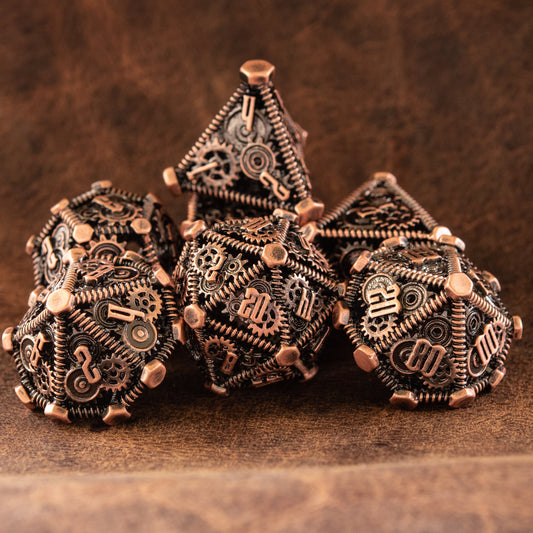D&D Difference Between Cleric and Paladin: A Comprehensive Guide
Introduction
In the world of Dungeons & Dragons (D&D), character classes play a crucial role in shaping the gameplay experience. Among the many classes available, clerics and paladins stand out due to their divine connections and unique abilities. Choosing between a cleric and a paladin can significantly impact your gameplay, roleplaying opportunities, and overall strategy. This article explores the D&D difference between cleric and paladin, providing you with the insights needed to make an informed decision for your next character.
Overview of Clerics and Paladins
What is a Cleric?
A cleric in Dungeons & Dragons is a versatile spellcaster who draws power directly from their deity. They serve as conduits for divine magic, allowing them to perform miraculous feats and support their allies in various ways.
- Definition and Role in D&D: Clerics are primarily known for their healing abilities and support roles within a party. They can also hold their own in combat, making them a well-rounded choice for players.
- Cleric's Connection to Deities: Clerics are chosen by their deities to fulfill a higher calling. This divine connection grants them access to powerful spells and abilities that reflect the nature of their god.
- Cleric's Primary Abilities and Spellcasting: Clerics use Wisdom as their primary spellcasting ability. They have access to a wide range of spells, including healing, protection, and offensive spells. Clerics can also choose a Divine Domain, which further defines their abilities and spells.
What is a Paladin?
Paladins are holy warriors who swear oaths to uphold justice and righteousness. They combine martial prowess with divine magic, making them formidable front-line fighters.
- Definition and Role in D&D: Paladins are known for their combat abilities and their dedication to a sacred oath. They serve as tanks and damage dealers, often leading the charge in battle.
- Paladin's Oath and Dedication: Paladins swear an oath that grants them their divine powers. These oaths come with tenets that the paladin must adhere to, and breaking these tenets can have serious consequences.
- Paladin's Primary Abilities and Spellcasting: Paladins use Charisma as their primary spellcasting ability. They are half-casters, meaning they have fewer spell slots and lower-level spells compared to clerics. However, they make up for this with powerful abilities like Divine Smite, which allows them to deal extra damage with their melee attacks.
Roleplaying Differences
Roleplaying a Cleric
Roleplaying a cleric involves embodying the will of their deity. Clerics often act as spiritual leaders and healers, guiding their party with wisdom and divine insight. Their relationship with their deity is central to their character, influencing their decisions and actions.
Roleplaying a Paladin
Paladins are driven by their oath and the principles they stand for. Roleplaying a paladin involves a strong sense of duty and honor. They are often seen as paragons of virtue, striving to uphold justice and protect the innocent. The threat of becoming an Oathbreaker adds an element of tension and responsibility to their role.
Comparison of Roleplaying Aspects
- Clerics: Focus on their connection to their deity, often acting as advisors and healers.
- Paladins: Emphasize their oath and principles, taking on leadership roles and engaging in combat.
Impact of Deity Relationship on Roleplaying
For clerics, their relationship with their deity is more direct and personal. They receive their powers as a blessing and are often given specific missions by their god. Paladins, on the other hand, gain their powers through their dedication to their oath. While they may serve a deity, their primary focus is on the ideals they uphold.
Gameplay Mechanics
Combat Roles
- Clerics: Serve as versatile support characters, capable of healing, buffing allies, and dealing damage from a distance.
- Paladins: Excel as front-line fighters, using their martial abilities and divine magic to protect their allies and deal significant damage.
Healing and Support Roles
- Clerics: Are the primary healers in D&D, with a wide array of healing spells and abilities.
- Paladins: Have limited healing capabilities through Lay on Hands and a few healing spells, but their primary role is to tank and deal damage.
Spellcasting Differences
- Clerics: Full casters with access to a broad range of spells that can be prepared daily. They use Wisdom for their spellcasting.
- Paladins: Half-casters with a limited spell list and fewer spell slots. They use Charisma for their spellcasting and focus on spells that complement their combat abilities.
Understanding the D&D difference between cleric and paladin can greatly enhance your gameplay experience. Whether you prefer the versatile spellcasting and healing of a cleric or the martial prowess and righteous dedication of a paladin, both classes offer unique and rewarding opportunities for roleplaying and combat. Sure, let's dive into Part 2 of the article, focusing on the unique features, proficiencies, and stats of Clerics and Paladins in Dungeons & Dragons, and how to choose between them.
Section 4: Class Features and Abilities
Subsection 4.1: Unique Features of Clerics
Clerics in Dungeons & Dragons are known for their divine connection and versatile spellcasting abilities. Here are some of their unique features:
-
Destroy Undead: Starting at 5th level, when an undead creature fails its saving throw against the Cleric’s Turn Undead feature, the creature is instantly destroyed if its challenge rating is at or below a certain threshold. This ability makes Clerics particularly effective against undead enemies.
-
Divine Intervention: Beginning at 10th level, a Cleric can call upon their deity to intervene on their behalf. This powerful feature can turn the tide of battle or resolve dire situations, showcasing the divine favor that Clerics enjoy.
-
Domain Spells: Each Cleric domain grants a list of spells that are always prepared and don’t count against the number of spells a Cleric can prepare each day. These spells are tailored to the domain's theme, providing Clerics with unique abilities and enhancing their versatility.
Subsection 4.2: Unique Features of Paladins
Paladins are characterized by their martial prowess and unwavering dedication to their oaths. Here are some of their distinctive features:
-
Divine Sense: As an action, Paladins can open their awareness to detect the presence of strong evil or powerful good. This ability is useful for identifying threats and ensuring the safety of their party.
-
Lay on Hands: Paladins have a pool of healing power that replenishes when they take a long rest. They can use this pool to heal wounds or cure diseases, making them reliable frontline healers.
-
Oath Spells: Each Paladin oath grants a list of spells that are always prepared and don’t count against the number of spells a Paladin can prepare each day. These spells are aligned with the Paladin’s oath and enhance their combat and support capabilities.
Section 5: Proficiencies and Stats
Subsection 5.1: Cleric Proficiencies and Stats
Clerics are proficient with light and medium armor, shields, and simple weapons. They use Wisdom as their primary spellcasting ability, which influences their spell save DC and spell attack bonus. High Wisdom also enhances their perception and insight, making them valuable in both combat and roleplaying scenarios.
Subsection 5.2: Paladin Proficiencies and Stats
Paladins are proficient with all armor, shields, and simple and martial weapons, making them formidable in combat. They use Charisma as their spellcasting ability, which affects their spell save DC and spell attack bonus. High Charisma also aids in social interactions, making Paladins effective leaders and negotiators.
Comparison of Proficiencies and Stats
- Armor and Weapons: Paladins have broader proficiencies, allowing them to wear heavy armor and wield martial weapons, which makes them more durable and effective in melee combat compared to Clerics.
- Spellcasting: Clerics, being full casters, have access to a wider range of spells and higher-level spell slots than Paladins, who are half-casters.
- Primary Abilities: Clerics rely on Wisdom, making them insightful and perceptive, while Paladins rely on Charisma, enhancing their leadership and social skills.
Section 6: Choosing Between Cleric and Paladin
Subsection 6.1: Factors to Consider
When choosing between a Cleric and a Paladin, consider the following factors:
- Combat Role: Do you prefer being a frontline fighter with strong defensive capabilities (Paladin) or a versatile spellcaster with a mix of healing and offensive spells (Cleric)?
- Spellcasting: Would you rather have access to a wide array of spells and higher-level spell slots (Cleric) or a limited selection of powerful support and combat spells (Paladin)?
- Roleplaying: Are you drawn to the idea of a character who is a conduit for divine power (Cleric) or one who upholds a sacred oath and embodies righteousness (Paladin)?
Subsection 6.2: Player Preferences and Playstyles
Your personal preferences and playstyle are crucial in making this decision. If you enjoy strategic spellcasting and supporting your party from a distance, a Cleric might be the better choice. If you prefer leading the charge into battle and using your charisma to inspire and protect your allies, a Paladin could be more suitable.
Subsection 6.3: Campaign and Party Dynamics
Consider the dynamics of your campaign and party. A balanced party typically benefits from having both strong spellcasters and resilient frontline fighters. If your party lacks healing and support, a Cleric can fill that role effectively. Conversely, if your party needs a durable tank and a charismatic leader, a Paladin would be an excellent addition.
Conclusion
In summary, the main differences between Clerics and Paladins in Dungeons & Dragons lie in their combat roles, spellcasting abilities, and roleplaying aspects. Clerics are versatile spellcasters with strong healing and support capabilities, while Paladins are resilient frontline fighters with a focus on martial prowess and divine oaths. When choosing between the two, consider your gameplay preferences, the needs of your party, and the dynamics of your campaign.
Explore more D&D content to deepen your understanding and enhance your gameplay experience. Whether you choose to play a Cleric or a Paladin, both classes offer rich opportunities for roleplaying and strategic combat.
Call to Action: Ready to dive deeper into the world of Dungeons & Dragons? Check out our other articles on character creation, campaign guides, and advanced tactics to become a master of the game. Share your experiences and favorite moments with us in the comments below!





